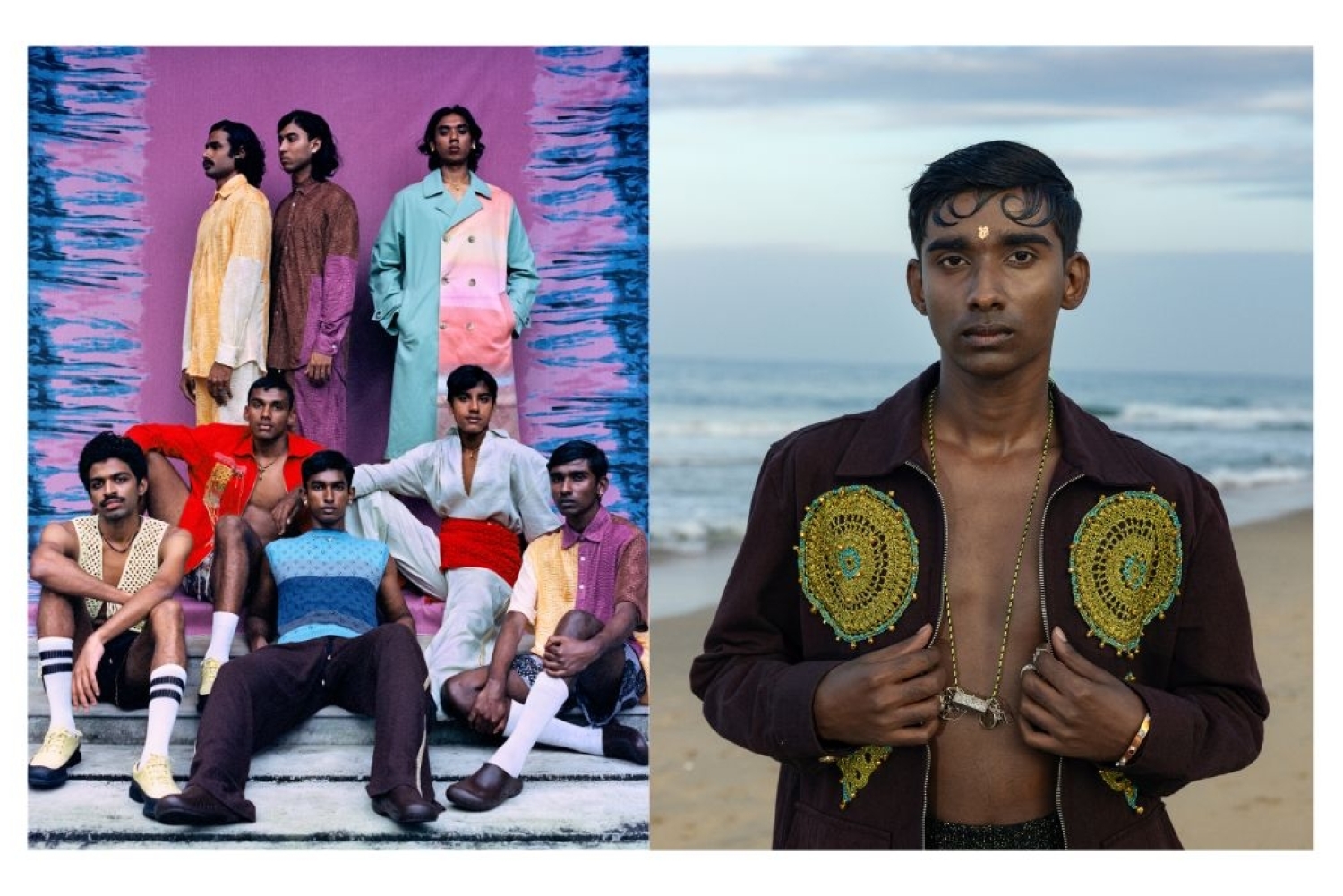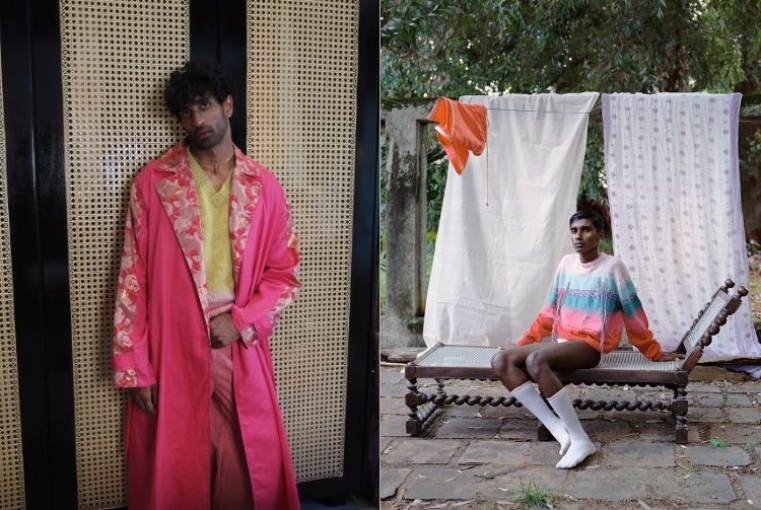
Photography Tavish Gunasena, Gregor Seifert, Amesh Wijesekera

Photography Tavish Gunasena, Gregor Seifert, Amesh Wijesekera
Amesh Wijesekera’s journey began in 2019, after graduating from the Academy of Design in Colombo, having apprenticed with Future Laboratory, Edeline Lee, and Dame Zandra Rhodes in London. Celebrated for his eclectic use of colour and craft textiles, AMESH blends artisanal techniques in hand-weaving, knitting and crochet with repurposed pre-consumer waste from Sri Lanka’s apparel industry to create trans-seasonal, gender-fluid pieces. His work draws inspiration from Sri Lankan heritage, childhood memories, and the island’s multicultural landscapes. First discovered at the Mercedes-Benz runways in Colombo, he has since showcased internationally in London, Berlin, Tbilisi, Delhi and Dhaka. In 2023, he was named the UK winner and a finalist of the Circular Design Challenge in India. We spoke to him about his journey, design sensibility, and love for Sri Lanka.
The Journey
The brand became global when I was the first Sri Lankan designer to be shortlisted for the prestigious LVMH Prize in Paris. I didn’t begin with a business in mind when starting the brand. It was just me, independently, working on sample collections after graduation. Then, I realised there was little to no presence in the global market for Sri Lankan craft, design and contemporary fashion made in Sri Lanka. The country is known for manufacturing apparel and garment exports, but it was not globally recognised as a destination for craftsmanship and textile making, in comparison to our neighbouring country India. I wanted to change that narrative and use our skills and resources to inspire a new vision and identity.
The brand focuses on my personal experiences, exploring childhood nostalgia, heritage craft, youth culture, gender identity, and sexuality. These themes are in the DNA of the label. I’m inspired by the people, communities, textures, sounds, smells, and chaos around me in Sri Lanka. My life between London and Colombo influenced my cross cultural identity and design sensibilities. My work involves artisanal techniques, including hand knitting, crochet, hand weaving, and up-cycling processes using surplus materials from the apparel industry.

Fashion Sensibility
Sri Lanka has limited resources, but everything we need is right here. We have incredible craft and a strong garment industry with recognised sustainable regulations. Leftover and dead-stock materials are usually sold in street markets or destined to landfills, so sourcing textiles from these markets was a natural choice from the beginning.
I also work with women artisan communities across the island, which enables their independence and ties into social sustainability and craft reveal. During Covid, when I couldn’t access artisans, I cut up family saris, sheets and used whatever I could find at home to design. Limited resources forced creative solutions. I often design based on what I find, not sketches and mood-boards. These values are now called ‘sustainable’, but for me they were always part of life and my practice.

Sri Lankan Roots
For me it’s about creating something special, something you’ll look after and care. Like the people who make them. I want pieces that you can cherish, keep in your wardrobe, and eventually pass on to someone else. I make only one of each piece so it becomes a collectable. The idea of a shared wardrobe—genderless and unisex. I want the wearer to put their label on it, stamp it with their own personality, and make it uniquely them.
Growing up in Sri Lanka, I always found the division between men’s and women’s wear, mostly mundane and non-inclusive. Men’s sections were boring: black, white, beige, khaki, just shirts and trousers. Women’s sections excited my inner childhood—vibrancy, selection and flair.
That felt like a fantasy wardrobe to me. Historically, women wore men’s clothing too—jeans and shirts, but colonialism suppressed gender expression and cultural identity in dress and adornment. For me, fashion and design naturally became a space to explore and challenge these archaic ideas.
Words Neeraja Srinivasan
Date 21-11-2025